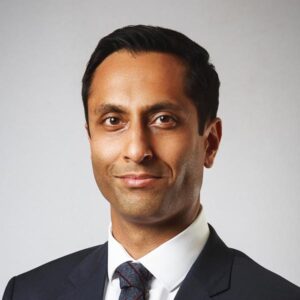Olivia competes at the World Triathlon Grand Final in Switzerland following AMIC knee cartilage surgery with Mr Raghbir Khakha
Olivia, an elite athlete/triathlete, had a bike crash in May 2018. She had pain in her neck, back and knee but continued to race and train. A few weeks later, her knee exploded in pain whilst she was out for a run as Olivia explains: “I couldn’t bend it or straighten it and it felt like something was wedged in the joint, impeding movement, like it was locked.”
I had an amazing recovery – I was able to bend my knee after 48 hours and was back to wakeboarding within two months of my operation. Four months later, I have no pain or swelling and can carry out lengthy surgery standing without any problems.
TAGGED INMr Raghbir Khakha
Knee sports injuries and trauma
A nasty bike crash left pro-athlete Olivia out of action and desperate to compete again
Olivia went to her GP who organised an MRI scan for her. The MRI scan showed that she had injured a significant proportion of her knee cartilage, which is the smooth lining of the end of the bone.
Olivia says: “As a triathlon coach and competing athlete this affected my life hugely. I had to scale back work and had to stop training almost entirely (I could still swim). I missed the 2018 world championships and took up another job to help pay the bills. It was pretty miserable!”
Olivia’s friend and former training partner Nicola Wood recommended Mr Raghbir Khakha as she has previously been treated by him and his colleague Professor Wilson for knee surgery.
Mr Khakha reviewed Olivia’s scans and confirmed that she had a large area of damage to her cartilage and discussed the options available to manage Olivia’s knee given her young age and her sporting ambitions.
One option was microfracture, whereby the damaged area of cartilage is tidied up (debrided) and the bone is then punctured with a specially designed tool to create a number of holes that causes the bone to bleed. This in turn causes the cartilage to heal, while forming new tissue. Mr Khakha felt that this procedure would be unlikely give Olivia sufficient enough cartilage surface for her to recover on and get back into her athletic endeavours.
Mr Khakha therefore recommended an AMIC procedure (autologous matrix-induced chondrogenesis), a new one-stage treatment used to repair cartilage. It combines microfracture surgery with the use of collagen to help repair damage and regain full mobility of the joint.
Carried out using keyhole surgery, it involves a tiny amount of cartilage being taken from your knee and then implanted into a matrix made of collagen which is immediately replaced into the knee joint. Afterwards, a personalised physiotherapy rehabilitation programme aims for the fastest recovery and best possible results.
Olivia’s surgery was carried out in November 2018 and her knee remained in a knee brace for six weeks after the operation. During this period she made a really good recovery and gradually increased her range of movement and started increasing her weight-bearing.
Olivia says: “I was careful not to get my hopes up for a full recovery (i.e. back to racing at the same standard) but I did hope to return to racing. I was told it may be up to 2 years before I could run properly again, so I tried to bear this in mind.”
She progressed steadily with her rehabilitation, having to slow down on a couple of occasions. She started with swimming and exercises and had a physiotherapist to guide her. Olivia was keen to get back into running, but Mr Khakha emphasised the importance of building up her muscles, which she did so diligently.
By May 2019, when Mr Khakha reviewed Olivia at his clinic she was cycling long distances and her muscles were significantly improving and she was absolutely delighted with the way she was progressing.
In September 2019, Olivia took part in the World Triathlon Grand Final in Lausanne, Switzerland, she says: “I was over the moon to find that not only could I run, but that I could be competitive. I am really excited about the future and honestly cannot thank Mr Khakha enough! I am not fully recovered and I do still have some weakness in my left knee, so the recovery journey is not over, but I am thrilled to be improving every day. I can walk, run, cycle, walk up and down the stairs, train and race!”
Her advice for patients with similar problems: “Be prepared for a slow recovery, but at the same time know that if you rest properly, and put the rehab work in, recovery is possible.”
Mr Khakha sumarises: “I was so pleased to see how well Olivia was feeling when I saw her following her return from the triathlon world championships in Switzerland. Despite having run a very difficult race, she was feeling remarkably good. I wish her well with her continued recovery.”

Looking to speak to our team? Call us on 020 7046 8000 020 7046 8085
To book an appointment
or refer a patient





